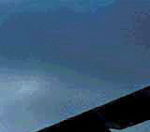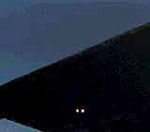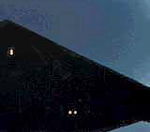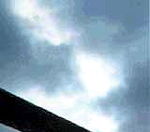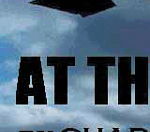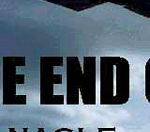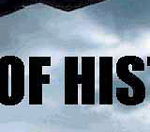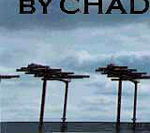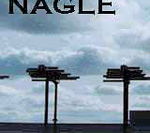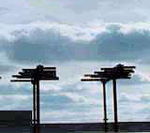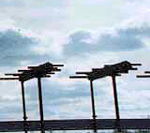KILL
A COMMIE FOR MOMMY
Fifteen
years or so ago, my attitude toward Communism and Communists was
similar to that of Generalissimo Francisco Franco (1892-1975)
of Spain. Franco used to blame all the world’s problems on Communists
and freemasons. Although I never thought much about freemasons
back then, I now think the Caudillo may have had a point about
them. But these days I bristle when I hear certain Americans say
the word "Communist." Ten years after the end of the
USSR, many posturing American armchair geopoliticians are still
reflexively bleating about "CAH-mmunism" without any
meaningful understanding of what they’re talking about.
What
does it mean to describe Lukashenka as a Communist? Is he a Marxist
ideologue? No. Is he a member of a Communist party? No. (There
are two Communist parties in Belarus – the Party of Belorussian
Communists and the Communist Party of Belarus – one of which is
in opposition to Lukashenka.) Was he ever a member of a Communist
party? Well, yes, but former Soviet Communist Party (CPSU) members
describe him as having been a "corporal" in the apparatus.
In fact, Lukashenka’s "reformist" opponents – so loved
by America – were a lot higher up in the Party than Lukashenka
was. Ex-Speaker Semyon Sharetsky was reportedly the youngest person
ever to receive the Order of Lenin. So it looks like "Communist"
is simply a convenient catchword the West can use to label certain
foreign politicians it doesn’t like, and Lukashenka fits the bill.
The
same goes for terms like "dictator" and "tyrant."
Even though Lukashenka was elected president fair and square in
1994 – and not even the propagandistic Western press disputes
that he won over 80% of the vote in the second round – he is a
"dictator." Why? Because he hasn’t "reformed."
Because he hasn’t "privatized." Because he’s used his
constitutional powers – increased under a 1996 referendum – to
keep the economy out of the hands of the Mafia and foreign vultures.
Because by Western definitions, Belarus’s government isn’t "transparent"
– i.e., not wide open to corruption and control by foreign
interests (even "Transparency International" – one of
US "philanthropist" George Soros’s NGOs – had to admit
that Belarus was probably the least corrupt country in the CIS).
Is
there private enterprise in Belarus? Plenty of it. It just isn’t
as "diverse" as in the more "reformed" republics.
Racketeering, for example, isn’t a major service industry. In
short, thanks to Lukashenka, Belarus still manages to function
more or less intact, because unlike in other ex-Soviet republics,
the bottom hasn’t fallen out of the economy and the spirits of
ordinary working people haven’t been completely crushed. These
are things for which America and the West cannot forgive Lukashenka.
But perhaps the worst of all his sins – his most grievous transgression
– he’s popular. We really hate that.
LET’S
HEAR IT FOR THE COMMON MAN
Lukashenka
doesn’t belong to any party. He opposed the breakup of the Soviet
Union just like the vast majority of the USSR’s ordinary people,
whose living standards plummeted in the decade after 1991. The
West was quick to make good buddies out of the grotesque old elite
when the Soviet Union was disintegrating, while it utterly ignored
the plight of common people. And in a classic case of Western
"doublespeak," it did it all in the name of "democracy."
With plenty of help from us, the nomenklatura – the Communist
Party elite – went from living high on the hog to living high
on the hog. During the Cold War, some of us naively believed that
our brave leaders understood a basic truth: that the Party nomenklatura
were the real enemies of freedom. But it’s them that America and
the West have rewarded across the former Eastern Bloc. We gave
them that helping hand and the pat on the back they needed to
make the ultra-smooth transition to the nomenklatura of
the New World Order. Their republics were left languishing in
political and economic depression.
But
Lukashenka is a different story. Lukashenka embarrasses Western
leaders because he’s what the old aristocracy would have called
a "peasant." He used to manage a collective farm and
play professional ice hockey. He enjoys kicking a soccer ball
around with fellow countrymen on occasion, and he talks about
the price of bread, meat and milk when he’s on TV. For standing
up for common folk in Belarus, the West has pilloried him relentlessly.
And it figures, really. The sordid, elitist likes of Madeleine
Albright would much rather shake the manicured hand of a former
Soviet Politburo member than the big proletarian mitt of Alexander
Lukashenka. Maybe the Belarusian Leader should feel relieved he
never had to interact personally with that little gem of Americana
on a regular basis.
PARADE
OF THUGS
On
the day before the Belorussian parliamentary election on October
15th, a crowd gathered outside the Academy of Sciences
to protest Lukashenka’s tyrannical rule. The mass looked about
2,000 maximum, although an absurd Western news report I saw put
the number at 10,000. This was the "opposition" boycotting
the election (as opposed to the opposition taking part), and the
West had advised these boycotters not to participate. One can
only guess at the "incentive" provided, but the fact
that the Belorussian Helsinki Committee had split apart in a squalid
quarrel over the division of Western money was certainly illustrative.
The
"Stalinist" regime had allowed the demonstrators to
assemble, wave red-and-white flags, give droning speeches, and
play distorted, folksy pop music through large speaker systems.
A lot of Western officials appeared at the rally, including some
with Organization for Security and Cooperation in Europe (OSCE)
armbands. A guy in a Timberland jacket who bore a distinct resemblance
to Lee Harvey Oswald showed up defiantly wearing an anti-Lukashenka
sticker on his sleeve. His eyes became increasingly fiery, mean-spirited
and full of zeal despite the lackluster display. Go, Lee Harvey!
I had a feeling he might be from the American Embassy and I wanted
to ask him whether foreign service regulations allowed him to
participate in a political demonstration in a foreign country.
But he was probably the kind of "principled rebel" to
flaunt such unprincipled laws.
At
last, the paymasters showed up. Several Western ambassadors and
NGO chiefs arrived in their limos and shivered as they listened
to appointed rally participants explain what was happening. They
looked a little disappointed. The crowd was sparse and unfocused.
It looked like all the expensive signs, sweatshirts, banners and
stickers had gone to waste.
Eventually,
a spokesman for the boycotters announced through his speaker system
that there had been a change in plan! The demonstration would
proceed through the city to the opera house in violation of the
government permit. O valiant rebels! Slowly, the motley mass of
2,000 moved together and prepared to proceed. As they spilled
into the street, the wing mirror of a slowly passing car grazed
one of the heroes. Though he was unhurt and had clearly stepped
into the oncoming traffic, the outrage could not go unpunished.
As the driver slowed to a halt to make sure there was no injury,
a brave comrade stepped forward to smash one of the windows with
his megaphone. The demonstration was off to a fine start.
I
followed the revolutionaries to their final destination at the
opera house, walking along the sidewalk on the same path the Western
ambassadors took. A man I think was the Italian ambassador walked
ahead of me, grinning smugly as he showed his solidarity with
what Western money had managed to buy. It wasn’t much, frankly.
Half the crowd were male, skinhead-type youths singing soccer
hooligan chants as they trudged drunkenly down the main drag.
I noticed that almost all these brave skinhead warriors wore bandannas
across their faces to avoid recognition. Hard currency would evidently
buy them for an afternoon of chanting and carrying signs, but
couldn’t quite get them to reveal their identities before the
Belorussian public (even though that public supposedly supported
them wholeheartedly). "Milosevic Today, Luka Tomorrow,"
many of the placards said in English. Were these English-language
signs meant for the consumption of Belorussians? Oh, but I forgot.
Western media were there, and the right camera-angles could make
this look like a "Revolution."
By
the time the procession had made it three or four blocks, the
street became so deserted you would have thought the city had
been evacuated. A few old people crept out onto their balconies
to have a look at what was making so much noise on a Saturday
afternoon. One gentleman – who looked about retirement age – signaled
to the demonstrators with a European gesture from very high up.
He placed his left hand on his right arm just above the elbow
and raised his forearm. I could only guess at what he was trying
to say.
Where
were all the police? Wasn’t this supposed to be a vicious police
state? The demonstrators had defied their permit and marched loudly
through the center of the city, diverting traffic and causing
a disturbance. Yet the entire time I saw only two police officers
who disappeared after a few minutes. Maybe this bold, dwindling
crowd of fighters – about a third of which was made up of children
– had simply frightened the police back into their lairs. In any
case, the masked skinhead hooligans (the future "Otpor"
of Belarus) were clearly spoiling for a fight, so it seemed strange
that the psychopathic tyrant wasn’t going to give them one.
THE
OSCE DOG-AND-PONY SHOW
Our
Group was among a small handful of Westerners to actually observe
the poll. The usual Western election-monitoring organizations
would not be observing because – in their infinite wisdom – they
already knew the election would be unfair. Instead, the OSCE,
Council of Europe, and European Parliament each sent a representative
from their "parliamentary assemblies" (groups of parliamentarians
from the member states), making up a "Troika" – or triumvirate.
The day after the election, the Troika would present its official
report of what it hadn’t observed.
Up
to then, I had observed three instances of "national"
votes in the ex-USSR: parliamentary elections in Armenia and Georgia
in May and October 1999, and a national referendum in Ukraine
in April 2000. It may not be saying much that the election in
Belarus was head and shoulders above these other plebiscites,
but it was. The polling stations were peaceful and clean and the
usual intimidating figures weren’t hanging around all over the
place. And the government didn’t try to claim that almost the
entire population had turned out to vote, as in the Ukrainian
referendum where you could practically hear the wind whistling
through the voting booths. But the snooty Troika organizations
didn’t need to see for themselves. They already knew the
election was no good.
Amid
the hooting and hollering of the audience of observers at the
Troika press conference, OSCE Parliamentary Assembly President
Adrian Severin – hands gesticulating outward in wimpy karate-chop
motion during his Latin-accented speech – told the audience: "BE-LA-RUS
needs Europe, and Europe needs BE-LA-RUS." Severin had of
course attended the boycotters’ demonstration, at which the splendid
demonstrators had carried a big European Union flag at the front
of the procession. Severin was sorry so many in the audience were
unhappy about the Troika’s conclusions, but said they would "have
to live with it."
Interestingly,
Severin had been a minister in the government of Ion Iliescu of
Romania in 1990, and had publicly thanked Romanian miners for
agreeing to come into Bucharest – at the government’s invitation
– to put down a peaceful demonstration using picks and shovels.
Several of the demonstrators were killed in the incident. What
were they demonstrating for? AN ELECTION BOYCOTT! Here
was a man eminently qualified to decide on the level of
democracy and the rule of law in Belarus!
And
then there was Hans Georg Wieck, the silver-haired German who
headed up the OSCE’s "Advisory and Monitoring Group"
in Minsk. Not long after the election, Lukashenka publicly stated
that he wanted the OSCE mission out of Belarus and accused Wieck
of being a "German spy." Western press agencies used
this as evidence that Lukashenka was a paranoid Stalinist but
– oddly – Reuters, AP, and the others failed to mention that Wieck
had been chief of the German Secret Services (Bundesnachrichtendient).
Again, the West could be truly proud that such a distinguished
figure was pronouncing judgment on Belarus’s progress in the area
of democracy and the rule of law. When a Gaullist member of the
European Parliament stood up to accuse the Troika of lies and
of having prepared its report several days before the election,
Mr. Wieck showed his true colors. "SILENCE!" he screamed.
"Vee vill only accept kvestions from churnalists!"
ANOTHER
"REVOLUTION"?
A
few days after the election, Lukashenka apologized to the inhabitants
of Minsk for the disturbance of October 14th, promising
it wouldn’t happen again. He gave a televised press conference
and answered several questions, but was most emphatic about one
thing: what had happened in Serbia on October 5th would
not happen in Belarus.
This
was probably a safe bet, even with Western agents trying to stir
up trouble under his nose. Belarus is an ethnically homogenous
country with no armed conflicts on its territory, and it’s a lot
closer to Russia than Yugoslavia both geographically and ethnically.
More than any other ex-Soviet republic, Belarus resembles a Russian
province. US efforts to foment a something like the Belgrade "Revolution"
of October 2000 would probably be in vain. But that doesn’t mean
Lukashenka can rest easy.
First
of all, Russian President Putin has been halfhearted in his commitments
to Lukashenka. He may appreciate Lukashenka’s constant attempts
to consolidate the Russia-Belarus Union, but would probably rather
have one of his own cronies in Minsk instead of Lukashenka, who
is very likely more popular among ordinary Russians than Putin
himself.
The
West, meanwhile, is probably attempting to purchase officials
within the Belorussian security services. America can’t lead by
example, it seems, so we have to do it by skullduggery. Since
the US has only one way to obtain loyalty any more – by dangling
dollars in the faces of foreign politicians – Washington will
try to put plenty of American money in the "right" hands
in preparation for "cutting the head off" the Belorussian
political system and proceeding with "reform." Reform
means "privatizing" Belorussian industry – essentially
shutting down enterprises so they can’t compete. Once we’ve turned
the country into an economic sinkhole, the popular will – and
therefore any political challenge – will be neutralized, because
the mass of ordinary people will have been brought to its knees.
Once we have a "modernizing elite" on our payroll with
plenty of experience in crushing dissent, broken spirits will
stay broken while we sing about the triumph of democracy. It’s
a tried and tested formula that’s worked for us everywhere else
in the ex-USSR.
It
will be interesting to see how Lukashenka fares in the face of
Western attacks in coming months. The persecution is sure to intensify
under Bush, whose National Security Adviser Condoleezza Rice –
in an attempt to look authoritative, decisive and statesmanlike
– has already adopted a Brzezinski-like stance with regard to
Russia. Frankly, I’m not convinced that Rice has a good grasp
of world affairs, but you can bet the likes of Adrian Severin
and other Europhiles will be. Their salaries depend on it.
AN
AMERICAN LEFT OUT IN THE COLD
As
I was leaving Belarus, the new envoy of the Hegemon – US Ambassador
Michael Kozak – arrived. I watched as he and his wife waltzed
into the airport terminal to meet the Embassy’s welcoming committee.
Lee Harvey was there, as well as a slightly manly female US Army
officer. Everybody pumped each other up. What heroes – so brave
to be in Belarus to advance democracy, privatization, and reform.
For
some reason, at the time of this writing, Lukashenka still hasn’t
found time to accept Kozak’s diplomatic credentials. Maybe it
has to do with the greaser Kozak heavily criticizing Belarus before
he’d even arrived, describing it as "worse than Cuba."
Very diplomatic. Anyway, Bush will almost certainly keep the Clinton
appointee (who worked for Bush’s father in Panama) in order to
give "continuity" to American policy in Belarus. After
all, George W. Bush – our Leader – is a "uniter, not a divider."
The
next test for Lukashenka will come in the presidential election
later this year. Interestingly, His Excellency Kozak threw a party
at the US Embassy in Minsk on November 8th, 2000, to
celebrate America’s great democratic electoral achievements. Part
of his speech went like this:
As
we have told the authorities of Belarus, if elections are conducted
in accord with … universal principles as defined more precisely
by the Organization of Security and Cooperation in Europe this
past spring …and if the resulting government continues to respect
the rights of minority parties thereafter …we will deal with
the resulting government as the legitimately elected representatives
of the Belorussian people. This is the way to end the impasse
that has existed for the last few years, and the way to bring
Belarus into the democratic mainstream of the rest of Europe.
I hope that next year we will be together again to watch the
results of another free and democratic election - the election
of the President of Belarus.
Of
course, when he said "another free and democratic election,"
he was a priori pronouncing the US presidential election
a model of electoral procedure to be emulated throughout the world.
And what a model it turned out to be! We sure know how to lecture
other countries, but don’t you dare criticize how we run our own
show. I know I can’t speak for other Americans, but give me a
choice between Minsk on polling day and Palm Beach, Florida during
a Jesse Jackson rally, and this citizen of the Republic will be
in Belarus quicker than you can say "Alexander Lukashenka."
So,
with that, all that’s left for this writer to say is: "Hang
in there, Lukashenka – and watch your back."
Please
Support Antiwar.com
A
contribution of $50 or more will get you a copy of Ronald Radosh's
out-of-print classic study of the Old Right conservatives, Prophets
on the Right: Profiles of Conservative Critics of American Globalism.
Send contributions to
Antiwar.com
520 S. Murphy Avenue, #202
Sunnyvale, CA 94086
or
Contribute Via our Secure Server
Credit Card Donation Form

or

Have an e-gold account?
Contribute to Antiwar.com via e-gold.
Our account number is 130325
Your
Contributions are now Tax-Deductible
|
